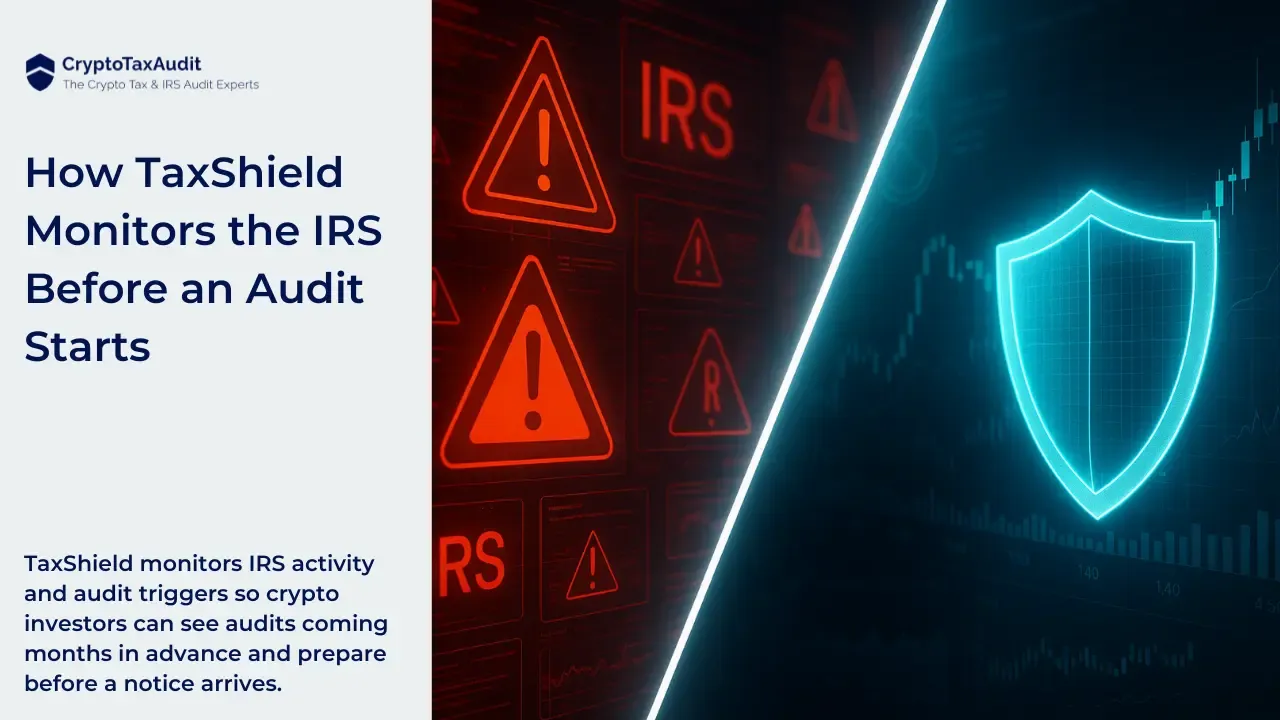
Gifting or Inheriting Crypto? Here’s How the IRS Taxes Each One
Key Takeaways:
-
The IRS taxes crypto gifts and inheritances very differently.
-
Gifting crypto passes your original cost basis to the recipient.
-
Inheriting crypto gives heirs a step-up in basis, often wiping out past gains.
-
Filing requirements like IRS Form 709 apply if gifts exceed the annual limit.
If you’re holding crypto and planning to pass it on—or expecting to inherit some—there’s a massive detail most people overlook: how the IRS taxes crypto gifts and inheritances.
Mess this up, and your heirs could end up with a tax bill on gains they never actually made.
And with crypto volatility, that bill could hit at the worst possible time—right after the market dumps.
Here’s what crypto investors and their families need to know before making any transfers.
What’s the Difference Between Gifting and Inheriting Crypto?
Let’s start with the difference:
- Gifting crypto during your lifetime can trigger long-term tax complications—even though it’s tax-free at the moment of transfer, according to IRS Publication 551 on Basis of Assets
- Inheriting crypto after someone’s death can wipe the slate clean—but only if it’s done correctly.
How Does the IRS Gift and Inheritance Exclusion Work?
The IRS allows each individual to transfer up to approximately $14 million over their lifetime tax-free, thanks to what’s called the unified gift and estate tax exclusion. (IRS Gift Tax FAQs).
This amount was expanded under the 2017 Trump Tax Cuts and is up for review in Congress again soon.
Here’s how it works:
- You can give anyone up to $ 19,000 per year (changes annually) without triggering a gift tax filing. This is the annual gift tax exclusion.
- Anything above that amount chips away at your $14 million lifetime limit (Trump’s Big Beautiful Bill will increase this to $15 million when passed.)
- Once that limit is exhausted? The IRS hits you with a 40% gift or estate tax. Yes—forty.
Why Is Gifting Appreciated Crypto a Hidden Tax Trap?
Let’s say you bought $10,000 worth of XRP years ago, and now it’s worth $100,000. You decide to gift it to your son.
Here’s the catch:
He receives your original cost basis. In this case, $10,000.
So when he sells it, the IRS treats it like he made a $90,000 capital gain—even though he never saw that growth himself.
That gain will get taxed at long-term capital gains rates, depending on how long he holds before selling.
💥 No tax when you gift it, but a huge tax bomb when they sell it.
Why Is Inheriting Crypto a Smarter Tax Move?
Now let’s say you pass away holding that same XRP.
Your heir receives the crypto, but instead of inheriting your original $10,000 basis, they get a step-up in basis to its current fair market value.
If they sell immediately? Zero capital gains tax.
If they hold it and it appreciates? They only pay tax on the gains from that new stepped-up value.
That’s a massive tax advantage.
When Do You Need to File a Gift Tax Return (Form 709)?
If you gift more than the annual exclusion in a single year to one person, you’re required to file Form 709 the Gift Tax Return.
And no, it’s not simple.
Crypto gifts make this process more complex, especially when tracking cost basis, valuation dates, and wallet addresses.
We've helped plenty of traders navigate this, and the paperwork is... let’s just say, not fun.
Oh, and transfers between U.S. spouses?
No gift tax. No return needed. Easy.
Important Considerations for Crypto Holders and Heirs:
- Think twice before gifting appreciated crypto.
Your heirs might be better off inheriting it. - Don’t guess on your cost basis.
Record it properly now to avoid IRS disputes later. - If you gift over the limit, file Form 709.
Failing to file can mess up your lifetime exclusion and invite IRS penalties. - Estate planning matters more with crypto.
Wallets, private keys, and access instructions are just the beginning. The tax angle is just as critical.
Need Help with a Crypto Gift or Inheritance Plan?
At CryptoTaxAudit, we help crypto holders avoid the traps and take full advantage of legal tax benefits.
Whether you’re planning to pass assets to your kids or already received crypto from a loved one, we can help you protect your gains—and theirs.
Avoid the hidden taxes. Keep more of what you’ve built.
Start your crypto inheritance strategy today at CryptoTaxAudit.com
Frequently Asked Questions About Inheriting Crypto Taxes
Q: Is gifting or inheriting crypto better for taxes?
A: Inheriting is usually better. Heirs receive a step-up in basis to fair market value, which can eliminate past gains. Gifting passes along your original cost basis, which often creates a bigger tax bill when the crypto is sold.
Q: Do I need to file a gift tax return if I give crypto?
A: Yes—if the gift is over the annual exclusion amount ($19,000 in 2024). You must file IRS Form 709, the Gift Tax Return. Crypto makes this filing more complex because you also need accurate records of cost basis, valuation date, and wallet addresses.
Q: What happens if I don’t keep records of my crypto cost basis?
A: Without proper records, the IRS may assume your cost basis is zero. That could mean paying tax on the full amount when the crypto is sold, even if you originally bought it for much more.
Q: How can CryptoTaxAudit help me with crypto gifts?
A: CryptoTaxAudit helps you calculate and defend your cost basis, handle IRS paperwork, and protect you in the event of an audit. We specialize in crypto tax reporting, gain calculation, and audit defense for U.S. traders.





